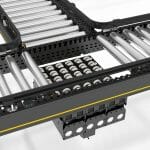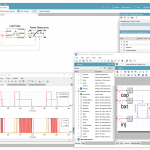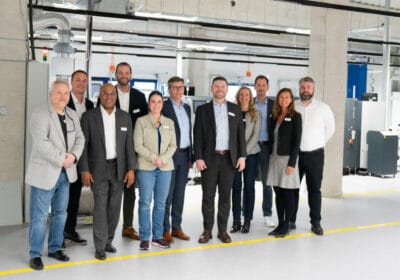- Shortage of engineering talent makes the candidate king, with employers demanding more digital and robotics skills
- Largest increases in advertised salaries are 3.5 per cent for CNC programmer and 2.9 per cent for electronics engineer
Engineering salaries are being driven up by the increasing demand for candidates with digital skills to capitalise on emerging technologies – as well as demand for those with traditional skillsets such as CNC programming (where salaries have increased 3.5 per cent across 2018), according to new data from the 2019 Reed Engineering Salary Guides.
Analysis of more than 10 million jobs posted across sectors since 2015 found that, while some roles have witnessed advertised salaries fall, those who can help businesses capitalise on technological advances are seeing salaries increase. There is also positive news for other roles across the board such as field service engineers (2.4 per cent increase), production managers (2.2 per cent increase) and engineering and technical directors (2.2 per cent).
This has resulted in an increase in advertised salaries overall of 0.1 per cent, but growth has slowed from previous years when advertised salaries increased 4.2 per cent between 2016 and 2017 and the same again from 2017 to 2018.
Mark Blay, director of Reed Engineering, says: “There is an acute shortage of candidates in engineering and manufacturing in the UK. We need 200,000 people per year with the right qualifications to meet demand from now until 2024, and there’s a massive shortfall that gives candidates the upper hand in the job market. Those with Level 3 qualifications and an understanding of robotics, artificial intelligence and additive manufacturing will have a key role to play in developing the future of the sector.
“The fear that ‘machines are going to take our jobs’ isn’t warranted – in fact automation will create jobs. However, a lot of training is still needed to take full advantage. We always ask clients what three things they definitely need to have from candidates, but we also ask what they can teach candidates to develop them once they have joined. With such rapid modernisation, no business will find the ready-made ‘perfect candidate’ – there has to be a strong element of training there too.”
Regionally, workers in Wales saw the largest average increase in advertised salaries, leaping 2.7 per cent. However, London was close behind experiencing a 2.3 per cent leap in salaries. Both of these figures are significantly above than the national average of 0.1 per cent.
Mark Blay continues: “The shortfall of candidates means higher responsibility on employers to attract and then train their workforce. For those who do so, there is room for great growth within the engineering and manufacturing sector in the years ahead. And staff retention, especially in fast moving industries, is always better when companies show willing to develop their teams with the business.”
For more information please visit www.reedglobal.com







